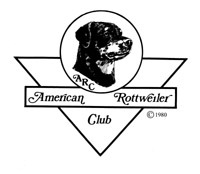Osteosarcoma is the most common primary bone tumor both humans and canines, affecting large breeds such as Rottweilers with significant prevalence. This type of cancer is often aggressive and likely will be fatal even when diagnosed early and treated effectively. Recent genetic studies, particularly those focusing on breeds like the Rottweiler, aim to uncover the genetic underpinnings of this disease, which could lead to improved preventative strategies and treatments not only for canines but potentially for human osteosarcoma as well.
Genetic Research and Early Detection in Rottweilers:
Research funded by organizations like the Rottweiler Health Foundation is vital in the fight against osteosarcoma. These studies aim to identify genetic markers that could predict the likelihood of developing this cancer, thereby enabling early detection and potentially saving lives. The Rottweiler Health Foundation, for example, supports research that seeks to identify blood biomarkers which could signal an increased risk of developing osteosarcoma in Rottweilers and other large breeds (Rottweiler Health Foundation) (AKC Canine Health Foundation).
Broader Genetic Insights Across Breeds:
Research has also expanded beyond Greyhounds to include other large breeds like Rottweilers and Golden Retrievers, which are similarly prone to OSA. Studies have identified specific genomic regions associated with OSA susceptibility in these breeds, suggesting potential targets for genetic testing and breeding management to mitigate this risk. The ultimate goal of these studies is to develop genetic tests that could help in selectively breeding to reduce the occurrence of OSA (AKC Canine Health Foundation).
The Role of Early Detection:
Early detection is crucial as it significantly increases the chances of successful treatment outcomes. Innovative projects, such as the Canine Osteosarcoma Early Detection study, utilize minimally invasive blood tests to identify dogs at risk, allowing for early intervention (Rottweiler Health Foundation) (AKC Canine Health Foundation).
Treatment Advances and Veterinary Care:
Upon detection, the typical response to osteosarcoma involves aggressive treatments such as surgery and chemotherapy. In some cases, limb amputation is necessary to control the spread of the disease. Emerging treatments, including those exploring the efficacy of drugs like rapamycin in combination with radiation, are also being studied to provide new ways to manage pain and prolong quality of life for affected dogs (Rottweiler Expert).
Implications for Human Cancer Research:
The genetic research undertaken in dogs can also enrich our understanding of human osteosarcoma. Dogs are a good model for bone cancer in humans due to physiological similarities, and insights gained from canine genetics may inform human cancer genetics and lead to breakthroughs in treatments (AKC Canine Health Foundation).
Conclusion:
Through the dedicated efforts of researchers and the support of breed-specific foundations, significant strides are being made in understanding and treating osteosarcoma in Rottweilers. These advancements not only promise to enhance the wellbeing and longevity of our canine companions but also offer valuable insights into similar conditions in humans, demonstrating the profound impact of veterinary science on medical research across species.
For more detailed information on these studies and how you can contribute to or benefit from this research, visit the Rottweiler Health Foundation and the AKC Canine Health Foundation on this grant effective 08/22/2022.



